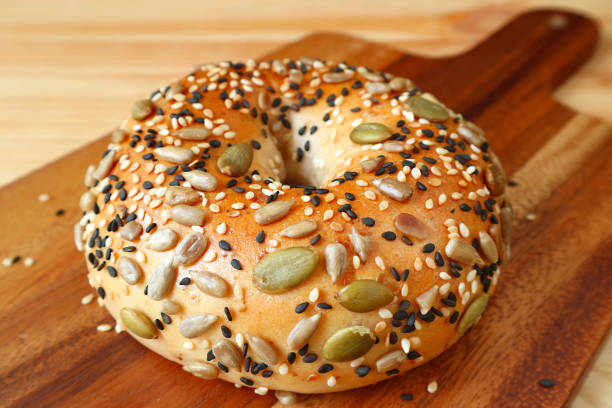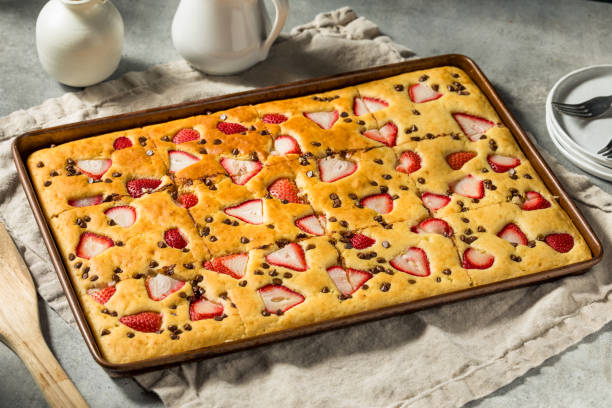Cottage Cheese Eggs Scrambled: A Healthy Breakfast Recipe
Scrambled eggs are a staple breakfast choice for many, celebrated for their simplicity, quick preparation time, and versatility. Whether enjoyed plain, seasoned with salt and pepper, or enriched with mix-ins like cheese, vegetables, or herbs, scrambled eggs can suit any palate. This beloved dish is not only a blank canvas for culinary creativity but also a source of protein and essential nutrients, making it a go-to option for those looking to start their day on a nutritious note.
Enter cottage cheese, a delightful ingredient that complements scrambled eggs while significantly enhancing their nutritional profile. Cottage cheese is credited with being packed with protein, calcium, and a variety of vitamins and minerals, making it an incredibly health-conscious addition to your breakfast. As you whisk it into your eggs, the cottage cheese not only adds creaminess but also infuses each bite with a mild tanginess, transforming a classic dish into something fresh and exciting.
This article aims to provide a comprehensive guide to making delicious cottage cheese scrambled eggs. From understanding the nutritional benefits of cottage cheese to step-by-step cooking instructions and creative variations, readers will learn how to elevate this breakfast favorite into a nutritious dish that fits seamlessly into various diets. By the end, you’ll have the knowledge and inspiration to whip up your own fluffy, rich scrambled eggs, topped with the creamy goodness of cottage cheese.
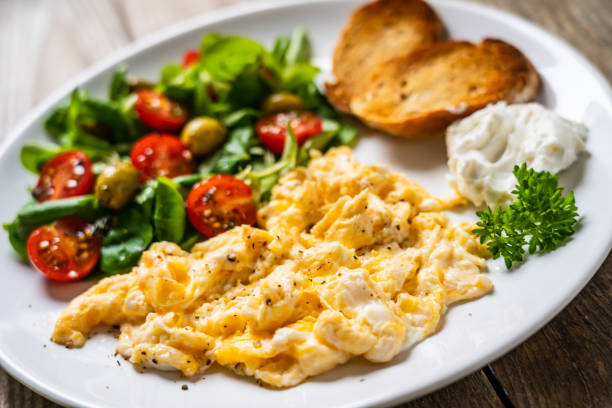
1. What is Cottage Cheese?
Cottage cheese is a fresh cheese curd product with a mild flavor and a lumpy texture. It is made from curds that can vary in size, allowing it to offer different consistencies, from small curds to large curds. The cheese is drained of its whey, resulting in a soft texture that many find pleasing. Cottage cheese can be enjoyed on its own or used as an ingredient in various dishes.
The nutritional profile of cottage cheese is impressive, making it a popular choice among health enthusiasts. A typical half-cup serving contains around 90 calories, with about 11 grams of protein and only 5 grams of carbohydrates. This makes it an excellent source of protein for those looking to increase their intake without adding excessive calories to their diet. Additionally, cottage cheese is rich in calcium, which is vital for maintaining strong bones and teeth, along with other essential vitamins and minerals such as phosphorus and vitamin B12.
Incorporating cottage cheese into your diet can provide numerous health benefits. Its high protein content supports muscle maintenance and repair, making it an ideal food choice for athletes and those engaging in regular physical activity. Furthermore, its low-fat content makes it a suitable option for weight management, allowing individuals to feel full without consuming large amounts of calories. With its mild flavor and adaptable nature, cottage cheese is a versatile ingredient that can easily be included in breakfast, lunch, or dinner.
2. The Benefits of Adding Cottage Cheese to Eggs
When combined with eggs, cottage cheese dramatically enhances the nutritional value of this classic dish. The addition of cottage cheese provides a significant boost in protein content. Scrambled eggs alone can deliver a decent amount of protein; however, when paired with cottage cheese, the protein content is elevated even further, making it a satisfying choice for breakfast that keeps you full longer.
Moreover, cottage cheese contributes a unique texture and flavor to scrambled eggs. The creamy richness it adds creates a luscious mouthfeel that elevates the dish beyond typical scrambled eggs. The mild tanginess of cottage cheese complements the eggs beautifully, creating a delightful balance of flavors that excites the palate. This combination of creaminess and flavor transformation turns a simple dish into a gourmet breakfast experience.
This dish is also suitable for a variety of dietary preferences. For those following low-carb or high-protein diets, cottage cheese scrambled eggs fit seamlessly into meal plans while providing essential nutrients. Its flexibility allows it to be enriched with vegetables or herbs, making it not only nourishing but also customizable to suit personal tastes. Whether you’re looking for a hearty breakfast or a quick snack, adding cottage cheese to your scrambled eggs is a brilliant way to enhance both nutrition and flavor.
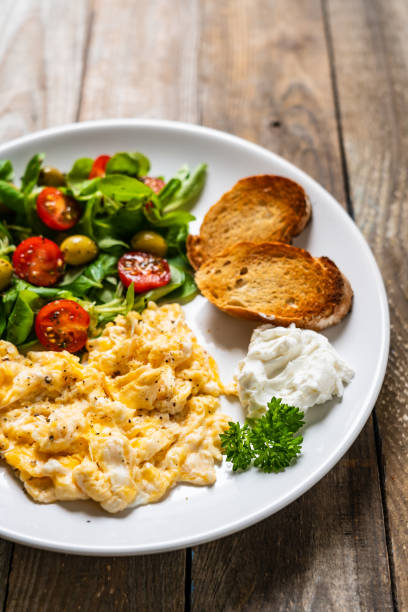
3. Ingredients for Cottage Cheese Eggs Scrambled
To create a delicious plate of cottage cheese scrambled eggs, you’ll need a few basic ingredients. Here’s a simple list to get you started:
- Eggs: Typically, 4 large eggs will suffice for 2-3 servings.
- Cottage cheese: Aim for 1/2 cup, preferably small curd for a smoother texture.
- Optional add-ins: Enhance your scramble with spices, vegetables, or herbs such as:
- Salt and pepper
- Chopped spinach
- Diced tomatoes
- Bell peppers
- Chopped herbs (chives, parsley)
You can also try different variations, such as using low-fat cottage cheese or omitting it altogether for a dairy-free option, substituting with nutritional yeast or silken tofu for added creaminess.
4. How to Make Cottage Cheese Eggs Scrambled
4.1 Preparation Steps
Before you start cooking, it’s essential to measure your ingredients and prepare any add-ins. Follow these steps to ensure a smooth cooking process:
- Measure out 4 large eggs and 1/2 cup of cottage cheese.
- Chop any additional vegetables and herbs you plan to include.
4.2 Cooking Directions
Now that you’re prepared, let’s dive into the cooking process:
- In a bowl, whisk together the eggs and cottage cheese until well combined. Season with salt and pepper to taste.
- Heat 1 tablespoon of butter or olive oil in a non-stick skillet over medium heat.
- Once the skillet is hot, pour your egg mixture into the pan.
- Allow the mixture to cook undisturbed for about 1-2 minutes, or until the edges start to set.
- With a spatula, gently stir the eggs, allowing them to cook through. Remember to fold and stir slowly to prevent them from becoming dry.
- Remove the pan from heat once the eggs are fully cooked but still creamy.
- Top with any optional vegetables or herbs before serving.
5. Tips and Tricks for Perfect Cottage Cheese Eggs
To perfect your cottage cheese scrambled eggs, keep these tips in mind:
- Temperature Control: Cooking at a medium heat allows the eggs to set without burning.
- Prevent Overcooking: Remove the eggs from the heat when they are slightly less done than your preference; they will continue to cook from residual heat.
- Achieve Creaminess: If you desire a creamier texture, avoid overloading the dish with excessive cottage cheese and consider adding a splash of milk or cream.
- Flavor Enhancements: Experiment with different spices like paprika, garlic powder, or onion powder for added flavor. Fresh herbs can uplift the dish significantly.
6. Creative Variations and Serving Suggestions
Consider these variations to give your cottage cheese scrambled eggs an exciting twist:
- Mediterranean Style: Add chopped olives, feta cheese, and fresh oregano for a Greek flair.
- Mexican Inspired: Mix in diced jalapeños, cilantro, and a sprinkle of cumin for a spicy kick.
- Breakfast Bowls: Serve over a bed of sautéed greens or quinoa for a hearty meal.
- Toast Pairings: Serve with whole-grain toast or avocado for a satisfying breakfast.
- Meal Preparation: These scrambled eggs can also be used in meal prep for quick, nutritious meals throughout the week.
7. Common Mistakes to Avoid
To make the most of your cottage cheese scrambled eggs, steer clear of these common pitfalls:
- Using Old Cottage Cheese: Fresh cottage cheese is key for optimal flavor and texture; check expiration dates before use.
- Overcooking the Eggs: Keep a close eye as scrambled eggs cook quickly; they should be soft and slightly creamy.
- Ignoring Seasoning: Don’t forget to season your dish adequately; bland eggs can lead to a lackluster experience.
8. Nutritional Information
A serving of cottage cheese scrambled eggs offers a wonderful nutritional profile, enhancing the benefits of traditional scrambled eggs:
- Calories: Approximately 180-200 per serving, depending on additional ingredients.
- Protein: Roughly 20-25 grams, thanks to the cottage cheese.
- Fat: Contains about 7-10 grams, depending on the type of cottage cheese and cooking fat used.
In comparison to classic scrambled eggs, the addition of cottage cheese significantly boosts protein while keeping the calories relatively low, making it an excellent choice for a nutritious breakfast.
9. FAQs
Can you add vegetables to cottage cheese scrambled eggs?
Yes! Vegetables like spinach, bell peppers, and tomatoes add flavor and nutrition. Simply chop them and mix them with the eggs before cooking.
Is cottage cheese good for a low-carb diet?
Absolutely! Cottage cheese is low in carbohydrates, making it an ideal ingredient for low-carb meal plans.
Can you use egg whites instead of whole eggs?
Using egg whites will reduce the fat content, but may result in a drier texture. Consider adding a sprinkle of cheese for added moisture.
How can I store leftover scrambled eggs?
Store any leftovers in an airtight container in the refrigerator for up to 3 days. Reheat gently in a microwave or on the stove with a splash of milk to restore creaminess.
10. Conclusion
With these tips, variations, and a solid understanding of the recipe, you are now equipped to enjoy the health benefits and delightful flavors of cottage cheese scrambled eggs. Experiment in your kitchen and don’t hesitate to share your takes on this nutritious dish!
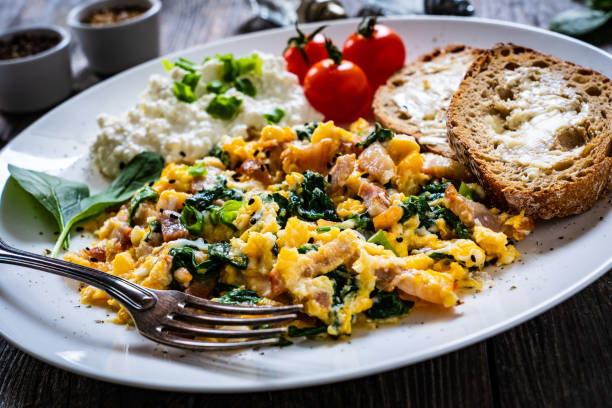
cottage cheese eggs scrambled
Equipment
- 1 mixing bowl
- 1 whisk or fork
- 1 non-stick skillet
- 1 spatula
- 1 measuring cups
Ingredients
- 4 large eggs
- 1/2 cup cottage cheese
- 1 tablespoon milk Optional for creaminess.
- to taste salt
- to taste pepper
- 1 tablespoon butter or oil
- fresh chives or parsley For garnish (optional).
Instructions
- In a mixing bowl, crack the 4 large eggs and add 1/2 cup of cottage cheese. If you like your eggs creamier, add 1 tablespoon of milk. Season with salt and pepper to taste.
- Whisk the mixture together until well combined. The cottage cheese will not fully blend but will create a lovely texture in the eggs.
- Heat a non-stick skillet over medium heat and add 1 tablespoon of butter or oil. Allow it to melt and coat the bottom of the skillet.
- Pour the egg and cottage cheese mixture into the skillet. Allow it to cook undisturbed for about 1 minute until it starts to set at the edges.
- Using a spatula, gently stir the eggs, pushing them from the edges towards the center. Continue stirring occasionally until the eggs are just set but still slightly runny (about 3-4 minutes).
- Remove the skillet from heat. Be careful not to overcook as the eggs will continue to firm up off the heat.
- Serve immediately, garnished with chopped fresh chives or parsley if desired.



